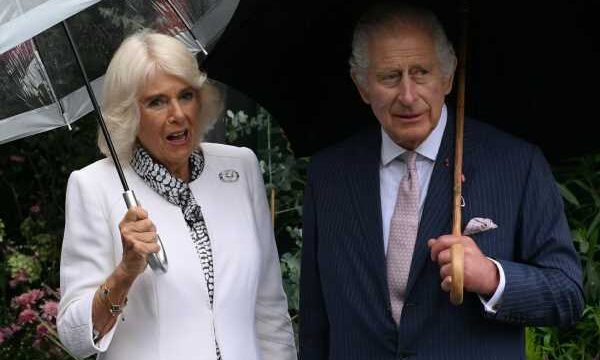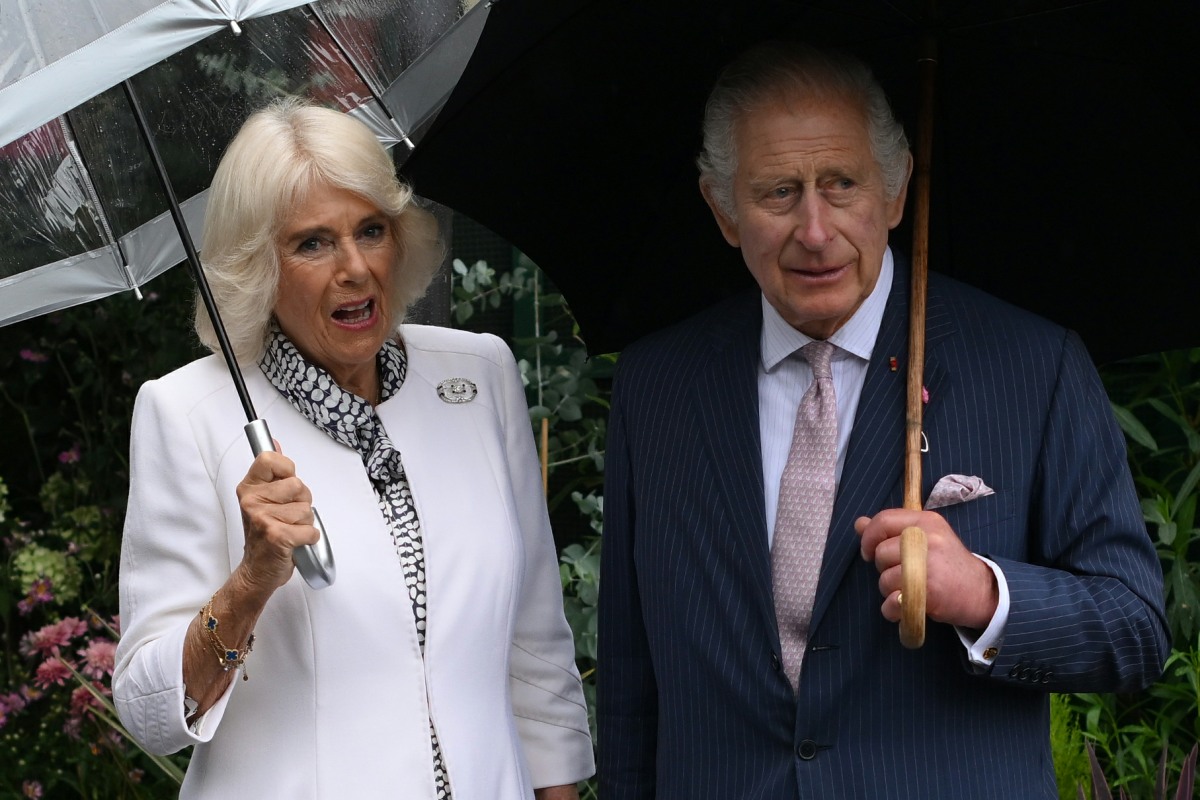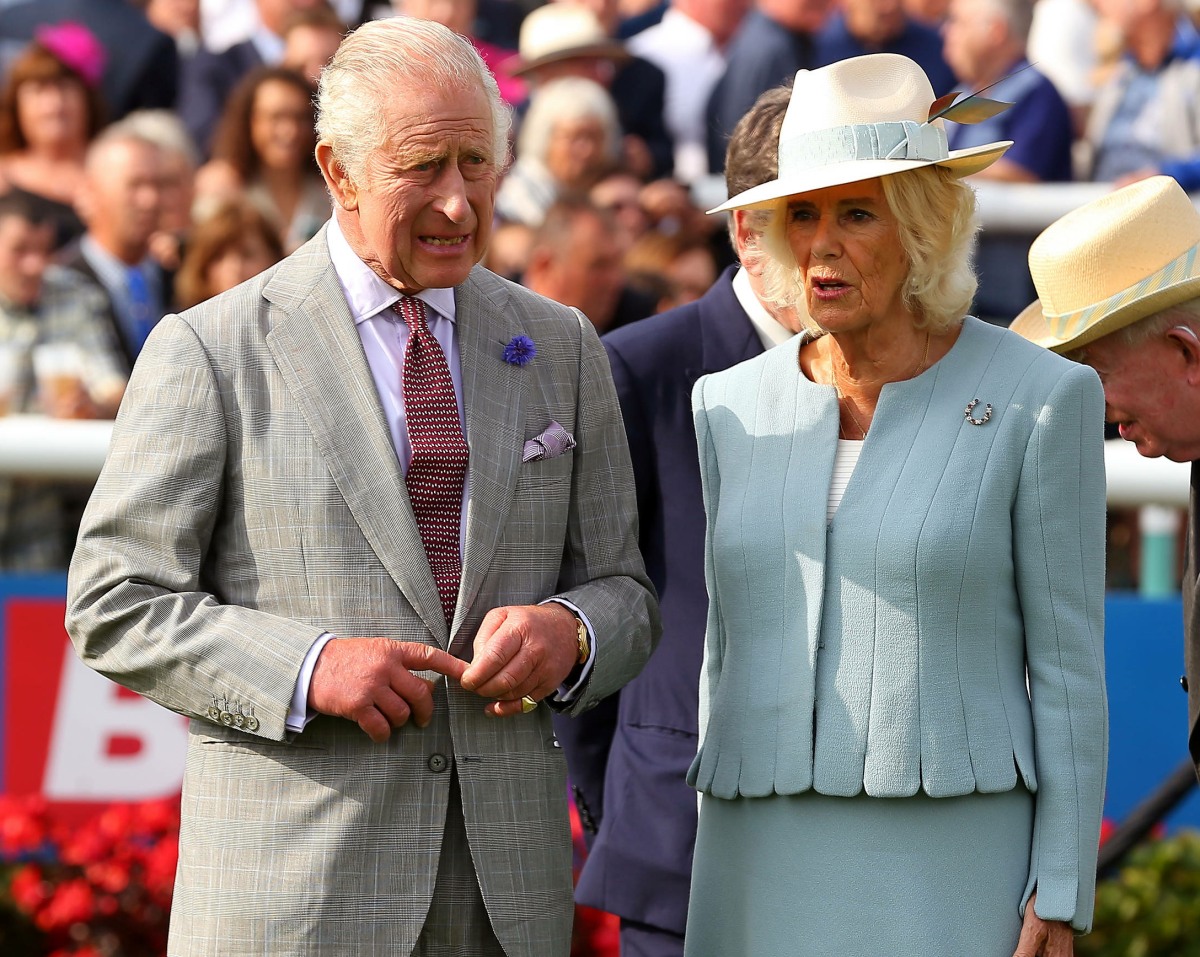King Charles and his consort will arrive in Kenya on Tuesday, Halloween. Boo! It’s a sausage-fingered racist coming to haunt you. There’s been a distinct lack of buzz about this Kenya trip, probably because no one wants to point out that this is the king’s first trip to a Commonwealth country as monarch AND because Charles is extremely nervous about the reception he and Camilla will get in the country. I said before that I imagine that C&C will try to keep things as lowkey as possible, but the palace has already indicated that it is extremely unlikely that Charles will go so far as “apologizing” for Britain’s many sins in Kenya. Interestingly enough, Tom Sykes at the Daily Beast had a long-read piece about how Kenyans will react to the king’s visit, given the extensive and well-documented history of British oppression in Kenyan, including 90,000 Kenyans murdered, tortured or maimed in the wake of the Mau Mau rebellion against the British colonizers. You can read the full piece here, and here are some highlights:
They want an apology: Influential Kenyan citizens and expatriates have told The Daily Beast they want King Charles to use his forthcoming visit to the country to make a full and frank apology for crimes perpetrated by British overlords as they crushed the Mau Mau rebellion in Kenya between 1952 and 1960, one of the bloodiest episodes in colonial history. So far, the Palace has refused to be drawn in detail on the question of how the king will deal with the divisive and toxic legacy of British colonialism in Kenya, with advisers only saying that he would acknowledge “painful aspects” of the countries’ “shared history.”
How people really feel: Take, for example, Dominic Kirui, a Kenyan athlete and double Olympian turned writer. In a telephone interview, he told The Daily Beast: “A royal visit in itself is not something that many Kenyans would have wanted or needed, because it awakens thoughts and feelings about the colonial past that many people have buried and never want exhumed.” Kirui comes from a region in the Rif Valley where, he says, “the scars of colonialism can still be felt and seen. The people in Kericho were driven out of their homes and their ancestral lands and forcibly resettled in Nyanza, on lands that were infested with the tsetse fly, which it was hoped would kill them. A royal visit only serves to remind people about the injustices that were committed and the pain they suffered, so I cannot believe it is something Kenyans would be eager to see or witness.”
Britain’s colonialist past is still felt every day in Kenya: Kirui points out that stories of oppression are common “all over Kenya” especially where huge tea farms comprising thousands of acres were carved out. “The people whose land was stolen… still live among the farms,” Kirui said, adding, “I see the visit by the royals as a way of the colonists saying to Kenyans, ‘We are still around. You are not as sovereign as you think you are.’” Kirui dismissed the generalized expressions of contrition made by Charles’ office saying that what was needed was “reparations to ensure people are compensated.”
Another Kenyan voice: James Mugo, a Kenyan-born lawyer who has lived in the U.K. for 26 years, has a very personal sense of outrage about what the British did in Kenya. In the mid-1950s, his grandfather, who was in his late seventies, was shot and killed at point-blank range by British soldiers as he emerged from a forest where he had been gathering honey from beehives he kept there. He was far too old to be mistaken for a Mau Mau fighter. Mugo told The Daily Beast: “Unless King Charles delivers anything less than an outright apology for the crimes committed by the colonists, he will not be welcome in Kenya. There are millions of people who are still languishing in poverty right now as a result of the British’s actions. They lost their land and were put in concentration camps and villages and exploited for cheap labor. I don’t see why Kenyans cannot be compensated.” Speaking about his grandfather’s murder by British troops, he said: “He was not fighting. He was 70 years old and he was shot by British soldiers collecting honey. So I personally find it very offensive that King Charles can go there and not apologize for what happened. Very offensive. It is adding insult to injury.”
[From The Daily Beast]
There are other Kenyans quoted, some of whom say that they welcome the royal visit and they want to see Kenya make some deals with British businesses. One suggested that China and Russia have been looking to invest in Kenya, which probably provides the best explanation for why Charles is visiting Kenya more than anything else. But yeah – it’s quite unlikely that Charles will issue a thorough apology and it’s quite likely that he will stammer through some half-assed speech where he basically says “mistakes were made, let’s move on and make a deal.”
Photos courtesy of Avalon Red.
Source: Read Full Article


